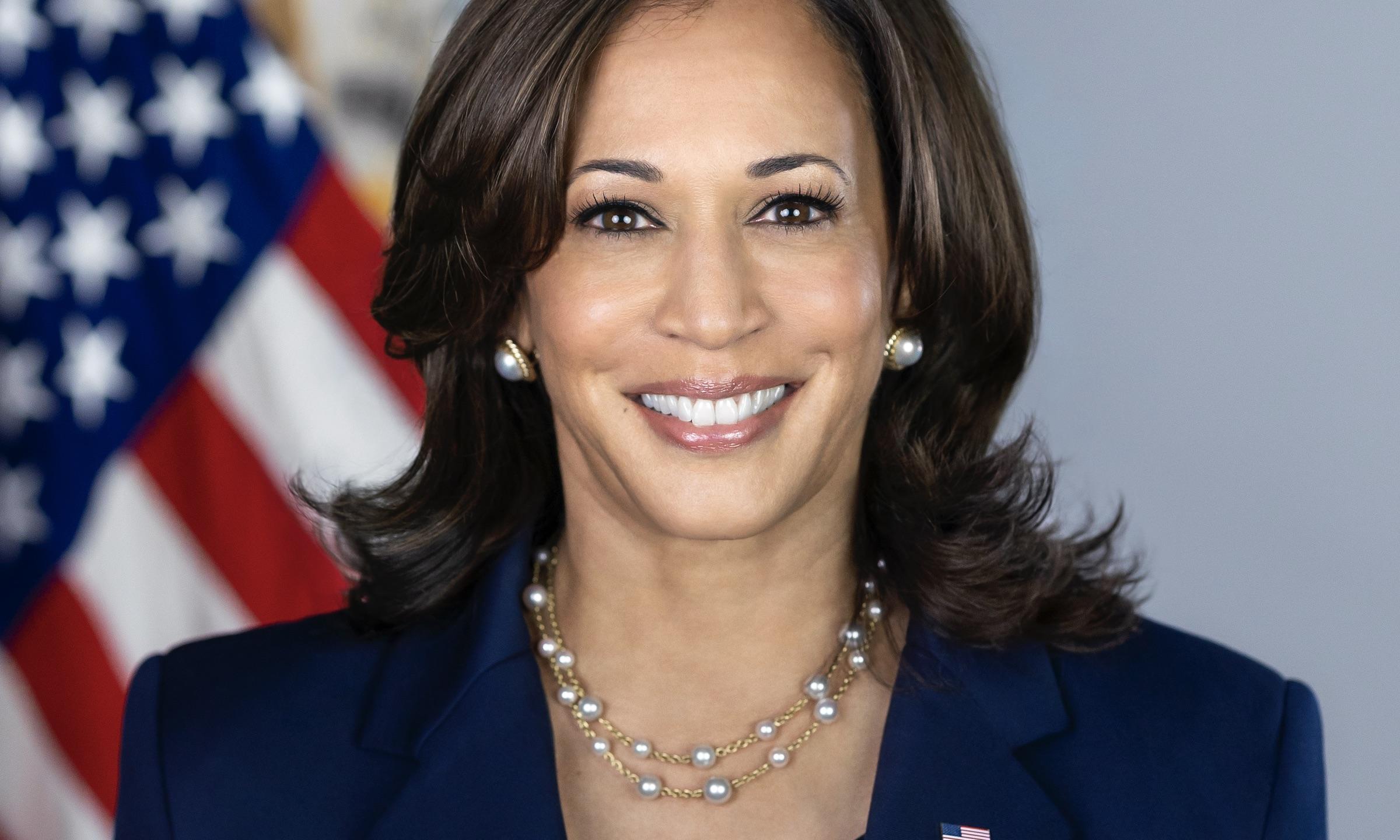A former Donald Trump administration official has disclosed off-the-record remarks she made about Vice President Kamala Harris' appearance. The comments, initially kept private due to their sensitive nature, have now come to light, adding a new dimension to the ongoing tensions between former President Donald Trump and his political opponents.
Alyssa Farah Griffin, who served as a communications official in the Trump White House, recently took to social media platform X, formerly known as Twitter, to share her thoughts on Trump's escalating personal attacks against Harris. Griffin revealed that she had previously made comments about Harris' looks but chose to keep them off the record, anticipating the controversy they might stir.
The revelation comes in the wake of Trump's latest salvo, where he claimed to be "better looking" than Harris, a statement that has drawn widespread criticism and ridicule. Griffin's decision to bring her comments to light highlights the discomfort some insiders feel about the increasingly personal nature of political discourse in the current climate.
Reflecting on her earlier remarks, Griffin admitted that she found the situation "cringe-worthy." She explained that her reluctance to make the comments public stemmed from a desire to avoid reducing political debates to superficial comparisons. However, she acknowledged the reality of the situation, stating, "I preferred to pretend we live in a reality where a potential POTUS doesn’t spiral over his opponent being better looking than him. But here we are."
Griffin's disclosure was further amplified by anti-Trump conservative attorney George Conway, who shared her comments and offered his own perspective on the matter. Conway, known for his outspoken criticism of Trump, quipped that he, too, believed Harris was more attractive than the former president, albeit with a note of sarcasm that underscored the absurdity of the comparison.
The exchange has drawn attention to the broader issue of how personal attributes, such as appearance, have increasingly become focal points in political attacks. Critics argue that such tactics distract from substantive policy discussions and reduce the seriousness of political debate.
This incident also underscores the challenges faced by those within the political sphere who seek to navigate the often treacherous waters of public discourse. For Griffin, the decision to speak out, even belatedly, reflects a growing unease among some Republicans about the direction of their party and its leadership.
As the 2024 election cycle heats up, it remains to be seen how these personal attacks will impact the broader political landscape. While Trump's remarks may resonate with a certain segment of his base, they also risk alienating voters who are weary of the negativity and are looking for more substantive discussions on the issues that matter most.



 Jack Lang Resigns as Head of Arab World Institute Amid Epstein Controversy
Jack Lang Resigns as Head of Arab World Institute Amid Epstein Controversy  Netanyahu to Meet Trump in Washington as Iran Nuclear Talks Intensify
Netanyahu to Meet Trump in Washington as Iran Nuclear Talks Intensify  U.S.-India Trade Framework Signals Major Shift in Tariffs, Energy, and Supply Chains
U.S.-India Trade Framework Signals Major Shift in Tariffs, Energy, and Supply Chains  Iran–U.S. Nuclear Talks in Oman Face Major Hurdles Amid Rising Regional Tensions
Iran–U.S. Nuclear Talks in Oman Face Major Hurdles Amid Rising Regional Tensions  South Korea Assures U.S. on Trade Deal Commitments Amid Tariff Concerns
South Korea Assures U.S. on Trade Deal Commitments Amid Tariff Concerns  Federal Judge Restores Funding for Gateway Rail Tunnel Project
Federal Judge Restores Funding for Gateway Rail Tunnel Project  Trump Signs “America First Arms Transfer Strategy” to Prioritize U.S. Weapons Sales
Trump Signs “America First Arms Transfer Strategy” to Prioritize U.S. Weapons Sales  Ohio Man Indicted for Alleged Threat Against Vice President JD Vance, Faces Additional Federal Charges
Ohio Man Indicted for Alleged Threat Against Vice President JD Vance, Faces Additional Federal Charges  Trump Endorses Japan’s Sanae Takaichi Ahead of Crucial Election Amid Market and China Tensions
Trump Endorses Japan’s Sanae Takaichi Ahead of Crucial Election Amid Market and China Tensions  Missouri Judge Dismisses Lawsuit Challenging Starbucks’ Diversity and Inclusion Policies
Missouri Judge Dismisses Lawsuit Challenging Starbucks’ Diversity and Inclusion Policies  U.S. to Begin Paying UN Dues as Financial Crisis Spurs Push for Reforms
U.S. to Begin Paying UN Dues as Financial Crisis Spurs Push for Reforms  Pentagon Ends Military Education Programs With Harvard University
Pentagon Ends Military Education Programs With Harvard University  China Warns US Arms Sales to Taiwan Could Disrupt Trump’s Planned Visit
China Warns US Arms Sales to Taiwan Could Disrupt Trump’s Planned Visit  Trump Signs Executive Order Threatening 25% Tariffs on Countries Trading With Iran
Trump Signs Executive Order Threatening 25% Tariffs on Countries Trading With Iran  Trump’s Inflation Claims Clash With Voters’ Cost-of-Living Reality
Trump’s Inflation Claims Clash With Voters’ Cost-of-Living Reality  New York Legalizes Medical Aid in Dying for Terminally Ill Patients
New York Legalizes Medical Aid in Dying for Terminally Ill Patients 































